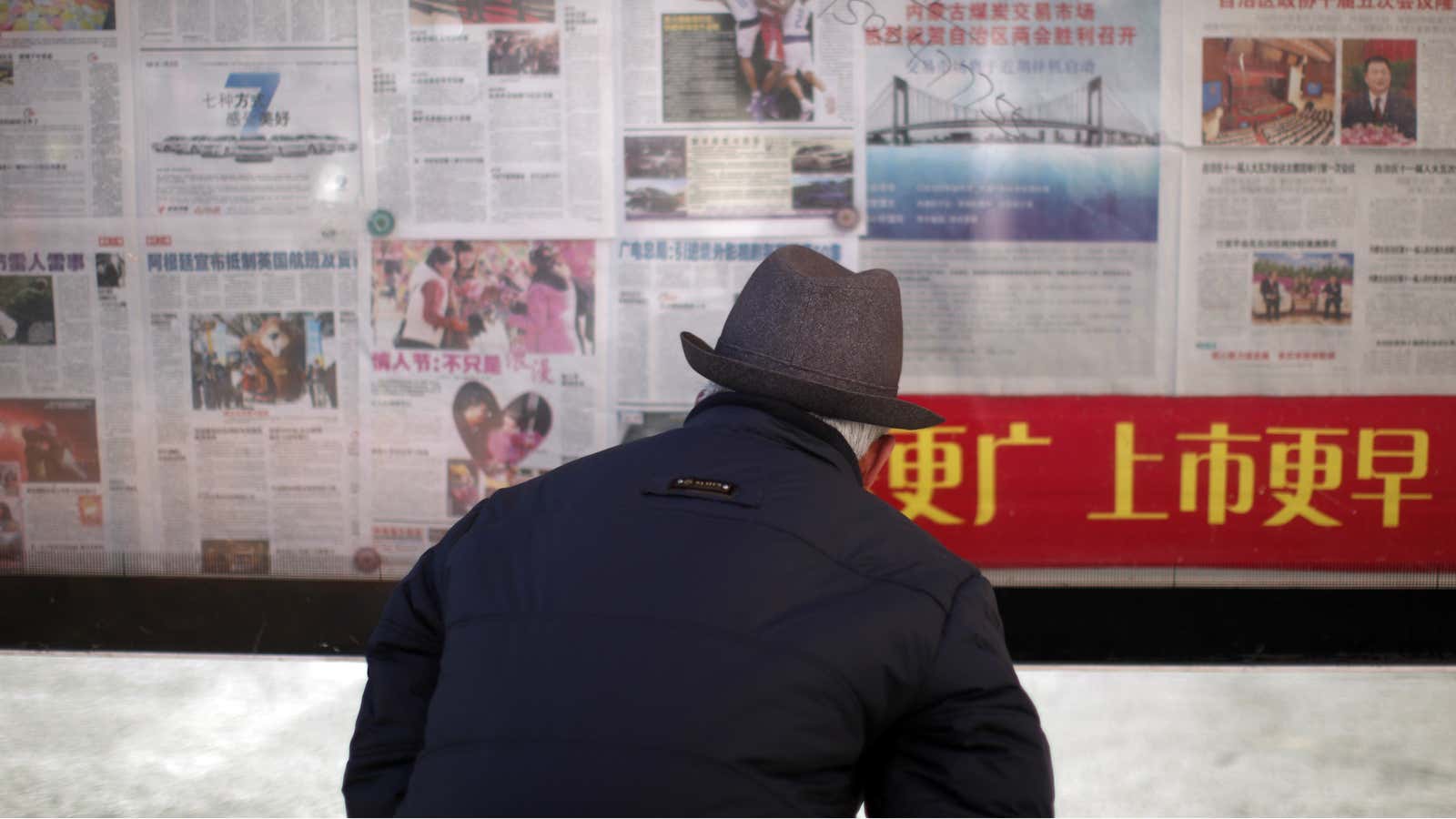If there were any doubts that media freedom in China is under attack, a strongly-worded op-ed ought to put them to rest.
On Sunday (June 19) party mouthpiece People’s Daily published a lengthy op-ed from Tian Jin (link in Chinese), the assistant bureau chief at China’s State Administration of Press, Publication, Radio, Film and Television (SARFT), the government organization that oversees media in China.
The piece riddled with jargon like “upholding the party’s nature,” and “fighting ideological struggles,” but Tian’s message is clear—either media outlets promote the Chinese Communist Party’s agenda, or be banned from broadcast, and perhaps worse.
“Programs that mock pertinent societal issues, ridicule national policy, disseminate misleading viewpoints, promote extreme views, deliberately go against societal order will soon find themselves resolutely stopped and managed seriously,” Tian wrote. He refer both to news media and entertainment, signaling that even fictional shows will be heavily scrutinized for their depictions of the party.
China’s media, he adds, is amid an ideological struggle with the West, which is engaged in a “conspiracy” to divide China .
“The conspiracy among foreign enemies to use force to divide and westernize us has yet to end,” Tian wrote. “The international notion that ‘The west is strong, China is weak’ has not fundamentally changed. News and public opinion sits at the forefront of this ideological struggle…”
Tian’s comments re-enforce Beijing’s tightening controls over the media, headed by SARFT. In March, a subdivision of SARFT published a sweeping set of rules that called for the ban of, among other things, homosexuality, superstitions, and anything that “harms public morality” from media. The bureau also ordered viral internet star Papi Jiang to take down her videos for using foul language.
SARFT’s initiatives have found plenty of detractors from within the media industry. This year, when party officials and advisers convened at the China’s ”two sessions,” movie producers and TV journalists spoke out in favor of greater media freedom. Tian’s editorial indicates that they’re unlikely to get their way.
